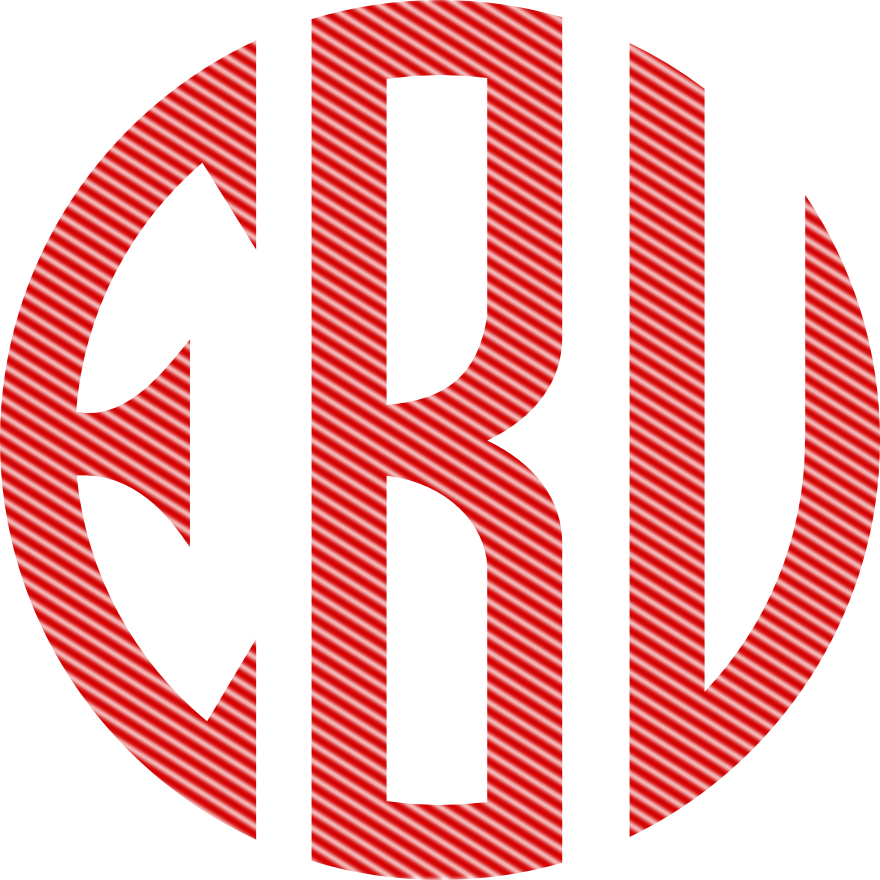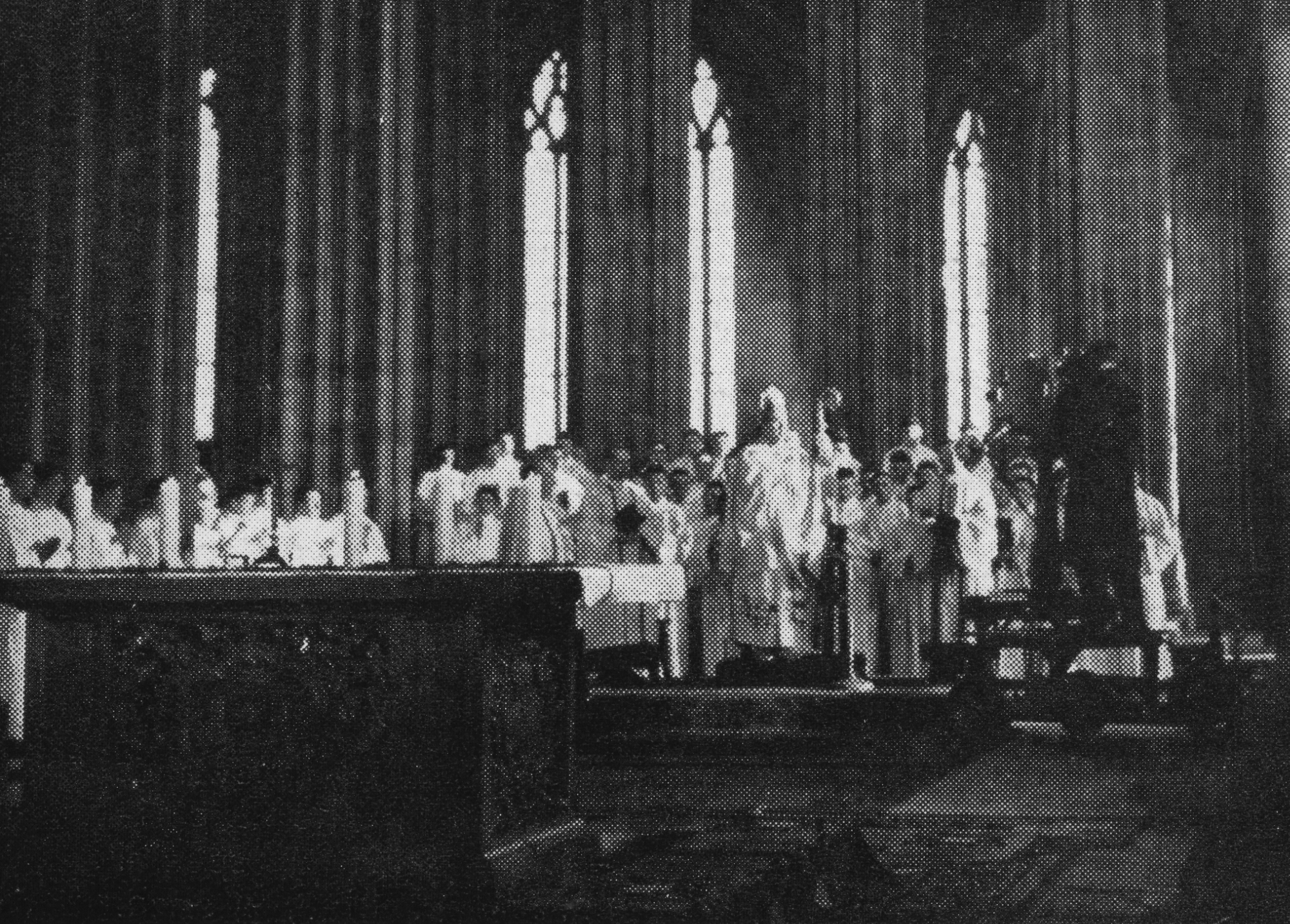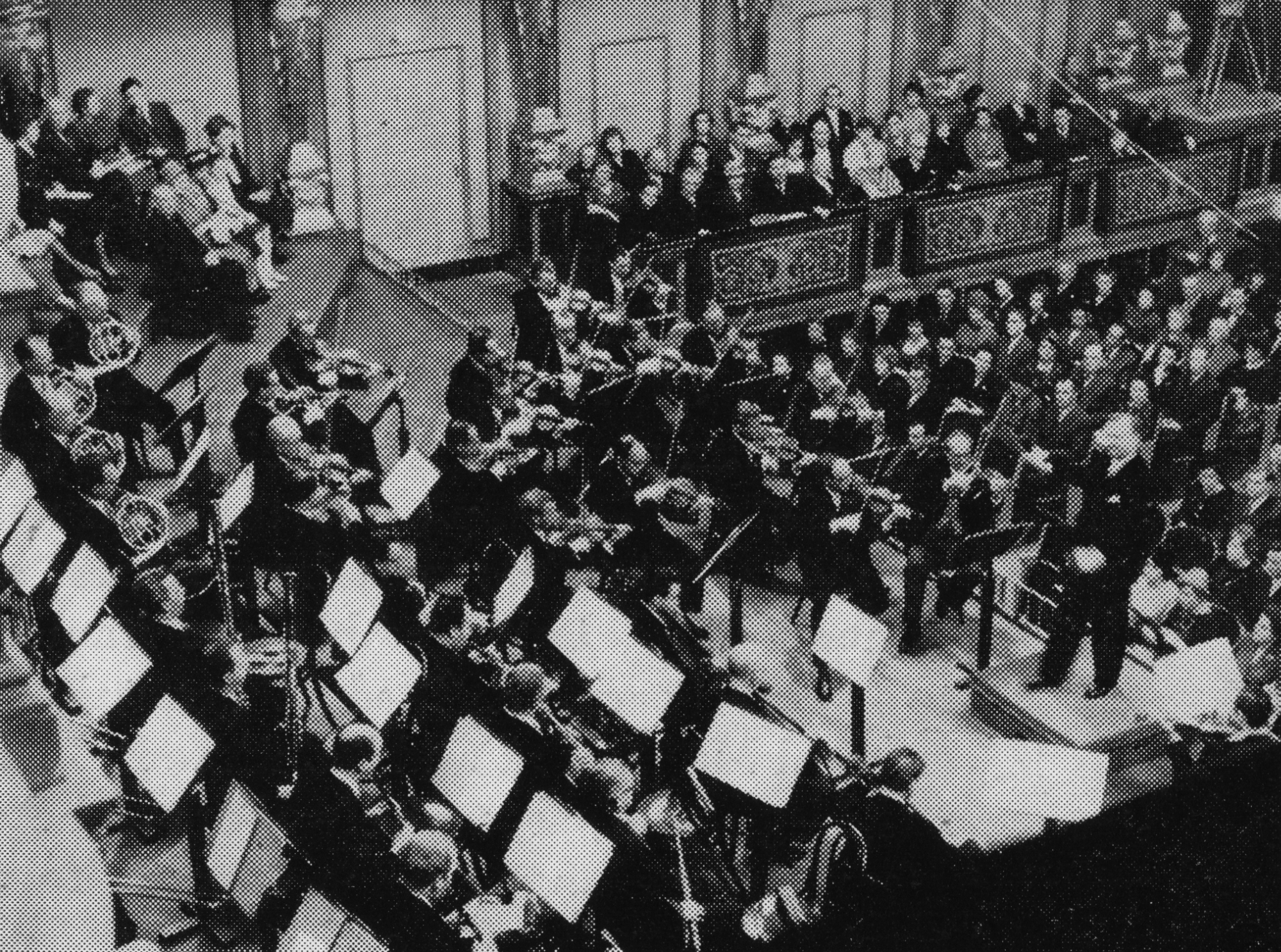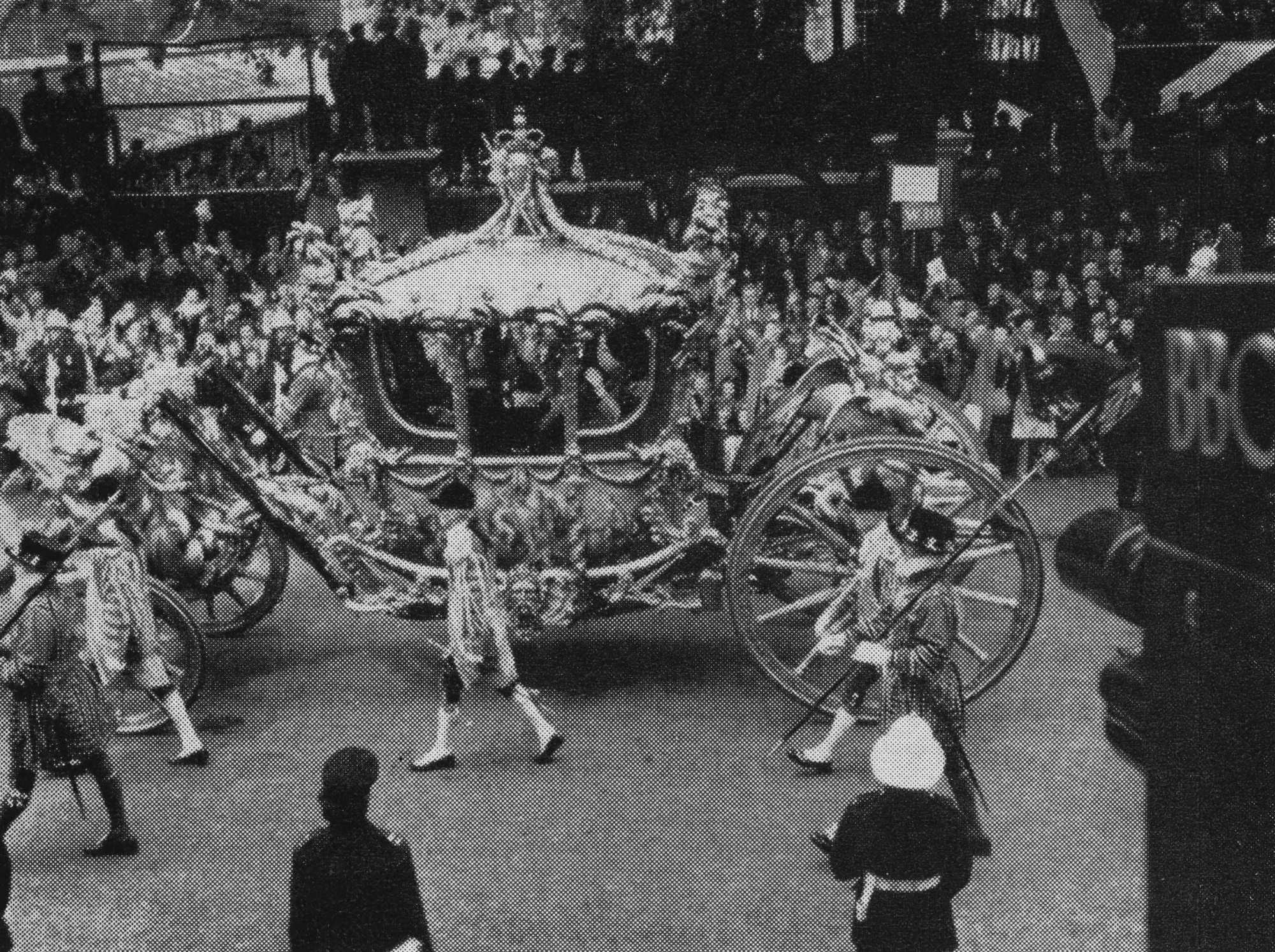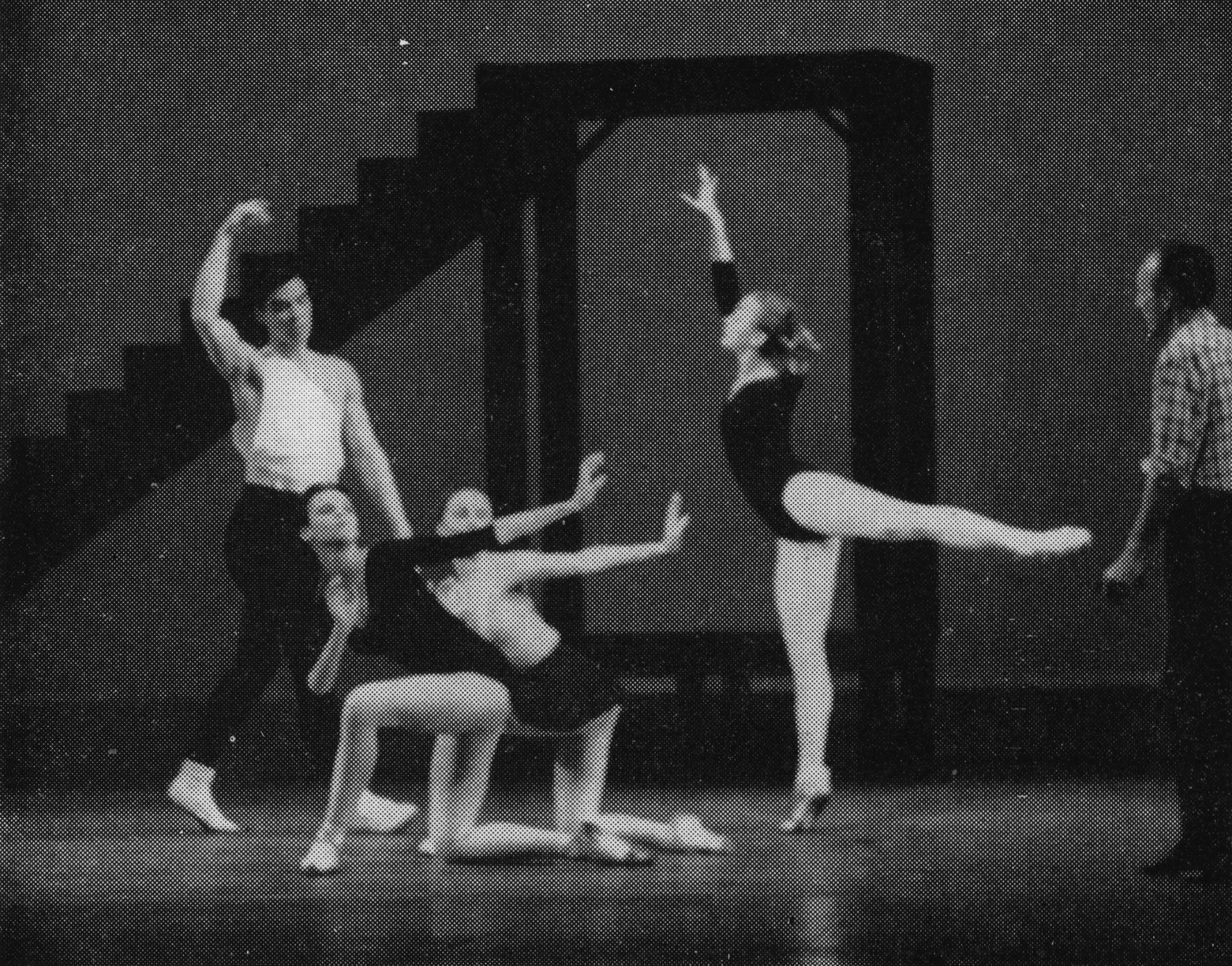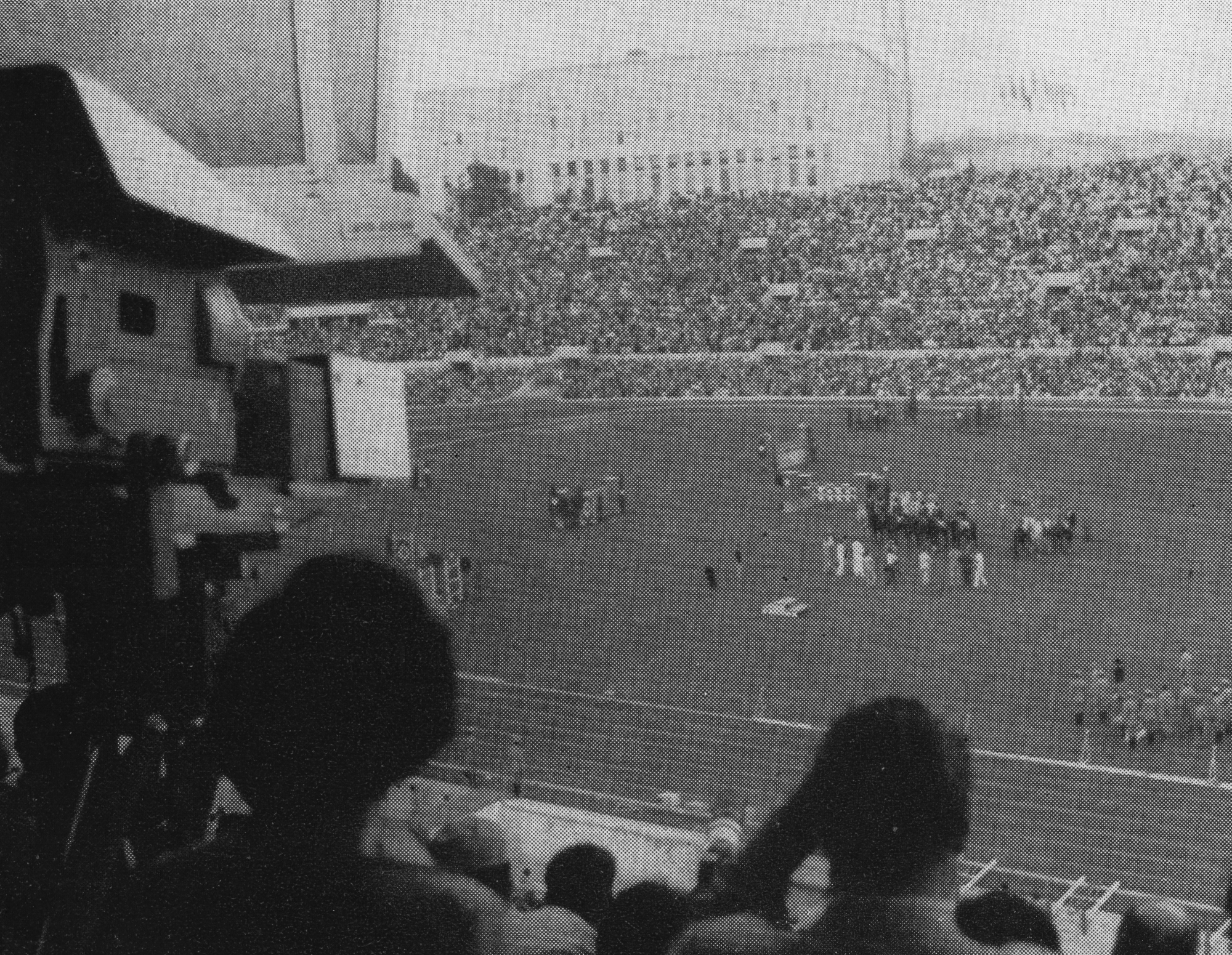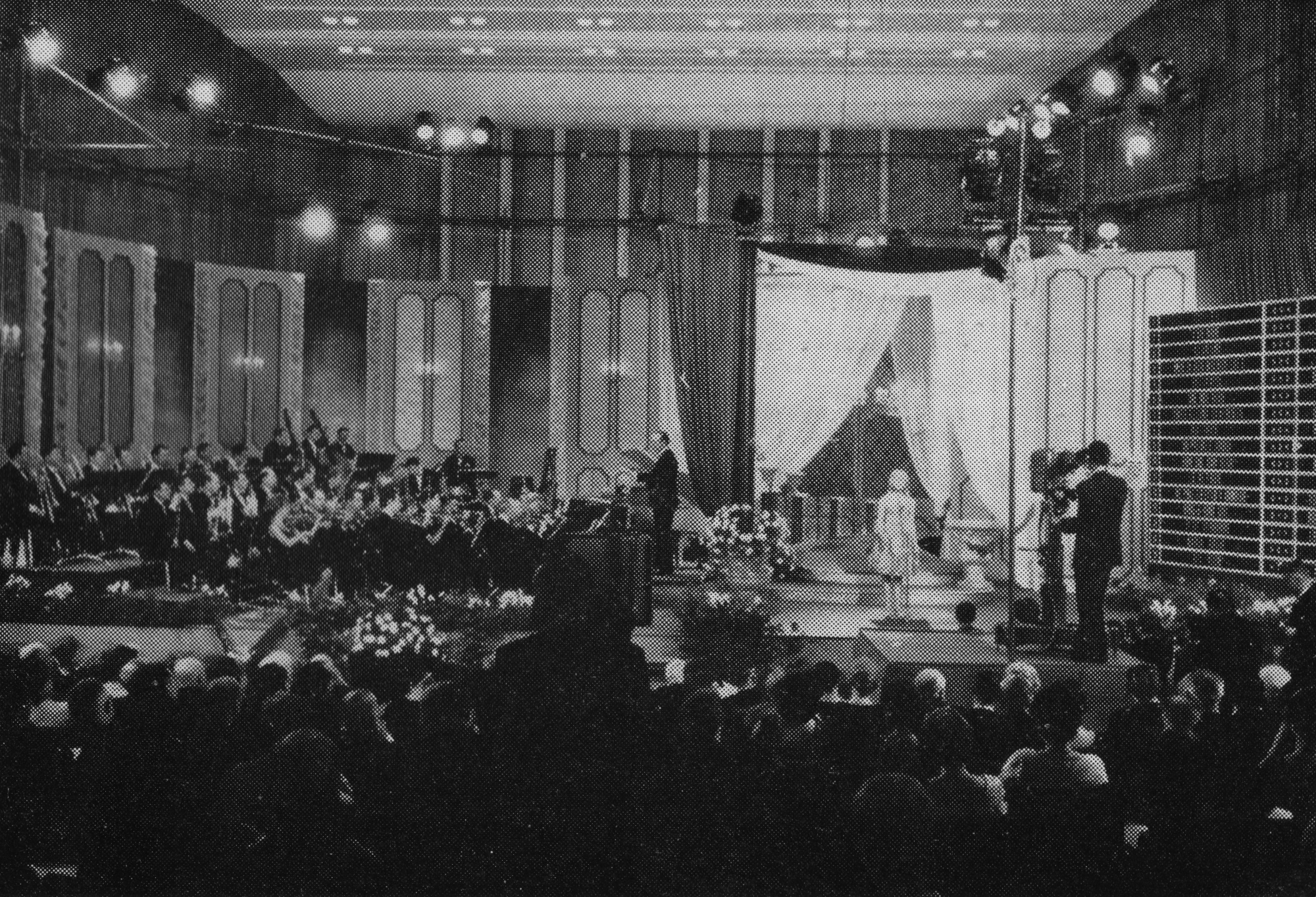Each year, Eurovision transmits a series of programmes that may already be qualified as traditional.
To quote a few as an example, the Pontifical Mass transmitted from Rome on New Year’s Day, the New Year’s Concert given by the Vienna Philharmonic Orchestra and the first sporting event of the year, the Ski Jumping transmitted from Garmisch-Partenkirchen in Germany.
These are followed by pictures of winter sports in a snow-bound Europe and the Eurovision Song Contest.
Spring and Easter are marked by the Pontifical Benediction of “Urbi et Orbi”, Whitsun by a regular Protestant Service and Roman-Catholic Mass.
In summer, an important place is reserved for open-air sporting events (Tour de France bicycle race, 24-hour motor-car race at Le Mans, the Milan – San Remo bicycle race and so on) and for the European artistic festivals, such as those at Salzburg, Glyndebourne, Aix-en-Provence, Bregenz and Neri.
Finally, the European Television Community is almost fully united in the middle of winter to take part in the Midnight Mass transmitted on Christmas Eve from a sanctuary somewhere in Europe.
In addition to traditional events of this sort, Eurovision is on the spot every time that an important event takes place in Europe, be it of an artistic, political, religious or sporting nature.
For this reason, “the great hours of Eurovision” are often also “the great hours of Europe”.
